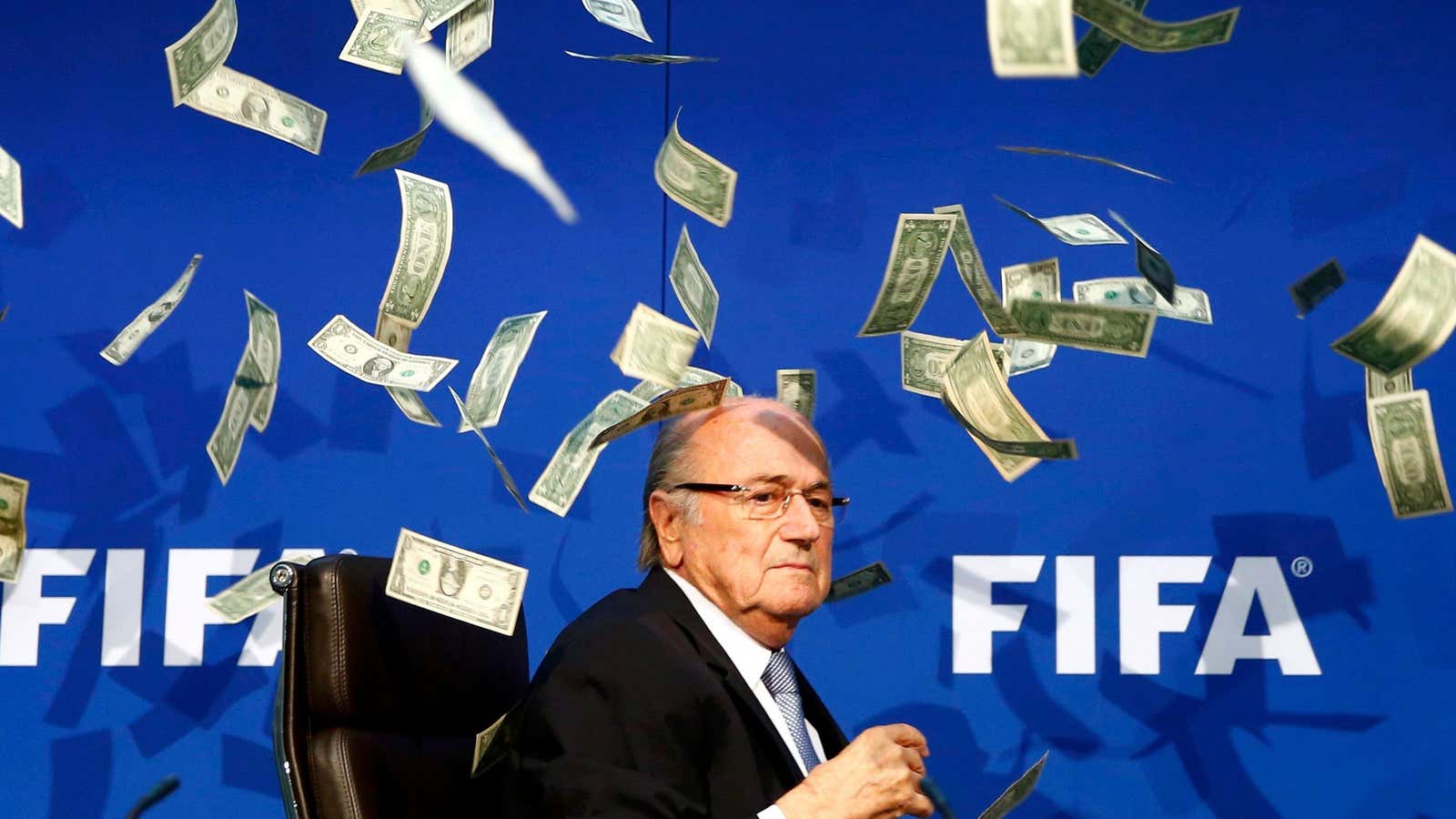Two of the biggest World Cup sponsors are finally putting pressure on FIFA, the global soccer authority that runs the tournament, to reform its governance.
Visa CEO Charlie Scharf said today that FIFA’s response to the corruption charges leveled against six of its top officials “are wholly inadequate and continue to show its lack of awareness of the seriousness of the changes which are needed.” Scharf also said that FIFA president Sepp Blatter, who said he would step down but remains in charge for now, actually needs to resign.
The comments by Visa’s CEO followed Coca-Cola’s call earlier this week for an independent commission to handle reforms of soccer’s governing body.
These may be the threats that force FIFA to listen. Visa and Coke are two of the six mega-sponsors of the 2018 World Cup. (The others are Adidas, McDonalds, Hyundai, Budweiser, and Gazprom.) In 2014, sponsors paid FIFA $1.6 billion to plaster their logos over the games in Brazil. The Cup is one of the few events in the world that commands so much attention in so many different countries, making it irresistible to advertisers.
That’s why little will change at FIFA unless its major sponsors insist. Visa is the only one of the six that has threatened to revoke its sponsorship. Scharf, the Visa CEO, didn’t repeat that threat today, but did make specific demands:
First, an independent, third-party commission led by one or more impartial leaders is critical to formulate reforms. Second, we believe no meaningful reform can be made under FIFA’s existing leadership.
FIFA is holding a special election to replace its president Blatter in February 2016, but he recently announced that a task force will outline a FIFA reform agenda in the next 90 days, leading critics to fear yet another scheme to keep Blatter in office.
Scharf’s comments came during Visa’s quarterly earnings call, and he can apparently afford to make demands. The company beat analyst expectations on revenue and saw a profit of 74 cents a share, and it seems soon to re-unite with its erstwhile European division in a $20 billion deal.
